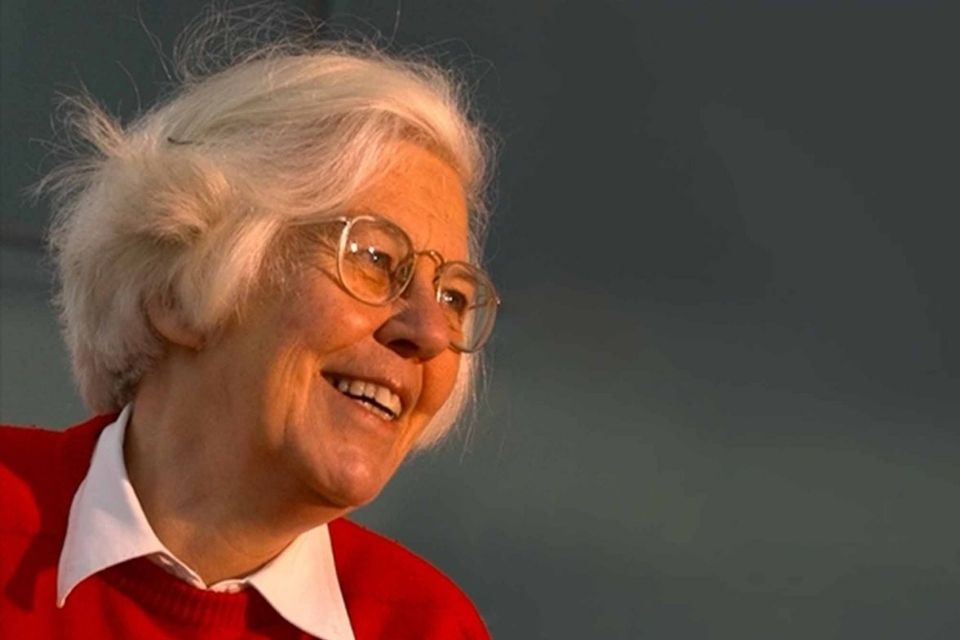30 November: Computer Security Day: Karen Spärck Jones
2 min leestijd
In the dynamic realm of computer science, the contributions of remarkable individuals often shape the course of technological advancement. One such visionary was Karen Spärck Jones, a computer scientist whose groundbreaking work in information retrieval laid the foundation for many aspects of modern search engines, natural language processing and artificial intelligence. This article pays tribute to her life and legacy, highlighting her revolutionary ideas that continue to influence the way we interact with information today.
Remembering Karen Spärck Jones: a pioneer and advocate for women in IT
Born in 1935 in Huddersfield (UK), Karen Ida Boalth Spärck Jones displayed an early aptitude for learning and problem-solving. She pursued her studies at the University of Cambridge, where she graduated with a degree in mathematics. Her affinity for maths and its applications led her to the field of computer science during a time when the discipline was still in its infancy.
The birth of information retrieval
It was in the 1960s, when computers were just beginning to enter the realm of information processing, that Karen made her first significant contribution to the field of information retrieval. She recognised that traditional methods of retrieving information from databases were inadequate for handling the nuances of human language. Her pioneering insight was that words appearing frequently in a document are likely indicative of the document’s content. This groundbreaking concept formed the basis of her famous work on the “Inverse Document Frequency” (IDF) weighting scheme.
IDF laid the groundwork for modern search engines by assigning higher weights to words that appeared less frequently across a corpus of documents. Common words that added little meaning were filtered out, while more significant keywords were highlighted. By revolutionising how information was indexed and retrieved, this innovation led to more accurate and relevant search results.
Natural Language Processing trailblazer
Karen wasn’t content with simply transforming information retrieval. She understood that language is inherently ambiguous, and that computers need to grasp context to truly comprehend human communication. Her research focused on creating computational models that could understand and generate human language: Natural Language Processing (NLP).
In the 1970s, she introduced the concept of “vector space models,” which represented words and documents as points in a high-dimensional space, enabling computers to measure semantic similarities between words and texts. This concept, along with her earlier IDF work, formed the foundation for various NLP applications we encounter daily, such as language translation, sentiment analysis and chatbots.
Legacy, impact and inspiration
Karen’s contributions have left an indelible mark on the field of computer science. By paving the way for more effective information retrieval systems, her research influenced the development of search engines such as Google and shaped the algorithms that power them. Her work in NLP continues to drive advancements in human/computer interaction, enabling machines to understand and generate human language.
In the era of big data, her insights into information retrieval continue to guide the development of sophisticated algorithms that allow us to sift through vast amounts of information, extracting valuable insights. This is particularly evident in fields such as healthcare, where rapid access to relevant medical information can lead to more accurate diagnoses and treatment decisions.
Beyond her technical achievements, Karen’s dedication to her field and advocacy for gender diversity in technology are equally inspiring. She was a prominent advocate for women in computing, recognising the importance of diversity in driving innovation, and proving that intelligence knows no gender bounds. Her efforts to promote gender equality in STEM fields have inspired countless individuals to pursue their passions without constraints.
Through her pioneering work and influential contributions, Karen Spärck Jones left her mark on today’s technology-driven society. Her pioneering concepts, such as IDF and term weighting, have become integral components of the technologies that define our digital landscape today. Her remarkable legacy reminds us that a single individual’s passion for knowledge and innovation can spark a revolution that shapes the world for generations to come.


